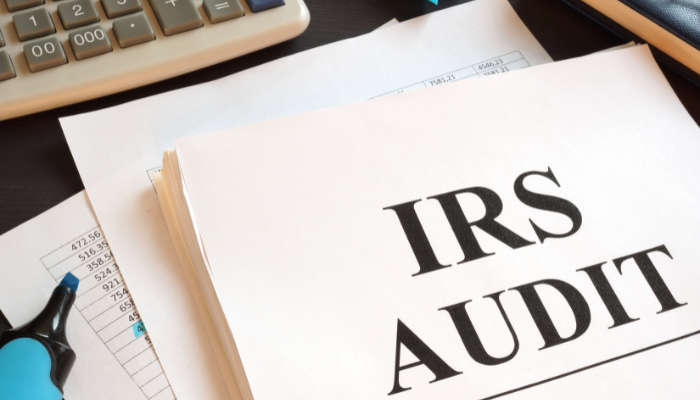
IRS Audit Penalties
I’m sure you would never want to go through the scary experiences the IRS audit penalties might give you. Nobody’s immune to receiving a notice of tax audit, whether you’re an individual taxpayer or running a business on a small or large scale. A common misconception most people believe is that only wealthy elites get audited because they own large corporations. However, this is not always true.
The reality is that the breadwinners who are earning on the highest or lowest extremes – making either minimum or hefty incomes, are more prone to get audited as compared to the individuals or businesses generating income of mediocre range – although it doesn’t mean that you’ll always be free of encountering IRS representation. In short, you can say that the Internal Revenue Service can be full of surprises for everyone!
Now if you’re wondering how long does an IRS audit take, know that it entirely depends on the type of audit being executed, and the resulting IRS audit penalties also vary in accordance with these categories. Typically, it takes a maximum of three to six months to begin and wrap up the audit whenever you file for taxation returns.
Click here to learn how do I become a certified IRS tax preparer.
What is an IRS Audit Penalty?
Many unfortunate events, either done willingly or unwillingly, such as erroneous or inaccurate records of taxation, incongruence between what kind of tax returns have been filed by you and what the official regulatory bodies have in their records, not paying or filing for tax returns invites the official notices to audit your finances.
Many of you might think that paying attention to the notices will save you from audits, but this is not true. In fact, these notices are just the beginning to either protect you from or levy IRS audit penalties which are financial charges or criminal repercussions imposed on taxpayers who are at fault.
You can prompt the IRS team for a number of reasons. For instance:
- Late filing your tax return
- Not paying taxes before the deadline
- Failure to file your tax
- Ignoring federal rules and regulations
Types of IRS Audit Penalties

The types of IRS audit penalties are categorized into two broad categories. Whenever your tax return is either filed or not filed, it will determine if your flawed return is subject to either additional interest or additional penalties, including civil fines, civil fraud, or criminal penalties.
1. Additional Interest
You are levied to pay additional interest in case of filing the tax returns late or fail to pay the taxes owed on time. The amount to be paid depends on how long the filing process has been delayed from your side and how much is yet to be paid. In addition, the IRS can charge you a ‘late fee’ for filing the returns two months late than the due date. This period of 60 days includes the extended due date for tax returns.
2. Civil Penalty
Civil penalties are the errors made in your tax return. If a significant discrepancy is pointed out between what you listed and what you owe to the IRS, in reality, you become liable to pay a civil penalty of 20% of the unpaid amount along with making the previous tax payment.
3. Civil Fraud Penalty
As the name indicates, a person with fraudulent charges who attempts to breach the IRS are scammers who have to pay an additional amount of 5% to 25% per month as a penalty for the unpaid tax. An extra amount of up to 75% can be added to your overdue taxation bill.
Moreover, if you still fail to pay these overdue taxes within three weeks after an audit took place at the representative office of your business, an additional penalty of 0.5% will be added to the unpaid burden of taxes on a monthly basis.
4. Criminal Penalty
This type of penalty is a real nightmare as it comprises fraud and tax evasion liabilities. If you’ve deliberately failed to file tax returns, pay your taxes or keep taxation records, and have criminal charges held against you, you can be subjected to spend one year behind bars.
Furthermore, ignoring filing returns every year can compel you to pay an annual amount of $25,000 to the IRS. Another scenario could be a jail time of up to three years, along with fines of up to $100,000 in case of any felonious act. On the other hand, concealing your financial assets to save yourself from filing tax returns imposes a fine of $25,000 and a five-year imprisonment.
Reasons for Taxation Penalties
Most of the reasons for IRS audit penalties revolve around the presence of errors or mistakes found in the tax returns – the extent of these penalties ranges up to 150 different types. As a result, you’ll end up with hefty bills after getting audited.
Dismissing or neglecting IRS regulations, underreporting your taxes, provision of a misstatement of your properties, overstatement of pension liabilities, failure to comply with the payments on the due date, and underreporting additional transactions that are meant to be reported are some of the main reasons that invite taxation penalties to your doorstep.
What happens if you get audited and don’t have receipts?
Navigating an IRS audit can be stressful, and making matters even worse when you don’t have all the appropriate receipts available can compound that anxiety further. An audit from the IRS without proper paperwork could have serious financial ramifications due to deductions or income being misreported and unsupported, leading to severe monetary repercussions for you and your finances.
One key repercussion of such an audit situation can be fines and penalties levied by the IRS. These fines and irs audit penalties vary based on the nature and severity of discrepancies discovered during auditing, making an initial inspection fee-based system impractical.
IRS audit fines are financial penalties assessed when income or deductions have been misreported to them by underreporting or overinflating them, such as understating income or inflating deductions. They typically range between 20%-75% of any underpaid tax amounts depending on how serious an error was committed and whether negligence or fraud are considered factors.
As well as fines, the IRS may levy penalties for negligence or substantial understatement of tax that will only compound your financial burden further. Penalties could reach 20% of what was due.
It’s essential to keep accurate records, including receipts, to avoid such dire results. In case of an audit without records available to support tax claims, consulting a professional tax advisor could prove invaluable and reduce fines or penalties significantly.
IRS tax audit penalties
Penalty for Failure to Timely File Return: If a taxpayer is required to file an income or excise tax return and fails to timely do so, a late filing penalty may be assessed. The penalty is 5% of the amount of unpaid tax per month (or partial month) the return is late, up to a maximum of 25%. A minimum penalty of $435 may apply for returns over 60 days late. The minimum penalty is the lesser of $435 or 100% of the tax due on the return.
Penalty for Failure to Timely Pay Tax: If a taxpayer fails to pay the balance due shown on the tax return by the due date (even if the reason for nonpayment is a bounced check), there is a penalty of 0.5% of the amount of unpaid tax per month (or partial month), up to a maximum of 25%.
Penalty for Failure to Timely Pay After Issuance of Notice: If a taxpayer fails to pay any additional tax assessed by the IRS penalties (usually as a result of an audit which can be avoided the taxpayer may be liable for a penalty equal to 0.5% for each month (or partial month) during which the failure continues if the amount is not paid within 21 calendar days after the date of an IRS notice demanding the payment.
Therefore, being audited by the IRS with incomplete documents could result in severe fines and penalties; to reduce risk and safeguard the financial future, accurate records must be kept to back up tax filings and safeguard financial well-being.
Final Thoughts
Facing the IRS audit penalties all alone can be a terrifying experience, especially when you’re meeting them all alone. In such events, you must call trustworthy taxation professionals so they can negotiate with the IRS on your behalf to save you from burdensome financial charges as well as the dangers of imprisonment.
